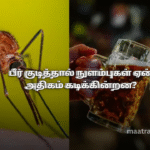இயற்கை விவசாயத்தினை இலங்கையில் வெற்றிகரமாக செய்வது எப்படி? : தொடர் 4
🌱🌱🌱🌱🌱🌱🌱
(ஒரு ஏக்கருக்கு உட்பட்ட சிறிய தோட்டங்களுக்கு)
திட்டமிடலில் அடுத்ததாக எங்கு, எதனை, எப்போது, எப்படி சந்தைப்படுத்தப் போகிறோம் என்பதை தீர்மானிப்பது முக்கியமானதாகும்.
எமது அவதானிப்புகளின் படி நஞ்சற்ற மரக்கறிகள் பற்றிய விழிப்புணர்வு மற்றும் தேவைப்பாடு தலைநகரம், மாவட்ட தலைநகரங்கள் மற்றும் ஓரளவு பெரிய நகரங்களில் வசிப்பவர்களிடையே, (கிராமப்புறங்களில் வசிப்பவர்களை விடவும்) சற்று அதிகமாக உள்ளது.
காரணம், நகர்ப்புறங்களில் நடுத்தர வயதினர் மற்றும் முதியவர்கள் இணையம், சமூக ஊடகங்கள், தொலைக்காட்சி, பத்திரிகைகள் மற்றும் ஆரோக்கியம் சார்ந்த கருத்தரங்குகள் போன்றவற்றில் இணைந்துகொள்ள ஆர்வம் கொண்டவர்கள். இது நஞ்சற்ற உணவுகளின் நன்மைகள் மற்றும் இரசாயன நஞ்சுகளின் தீமைகள் பற்றிய தகவல்களை அவர்கள் விரைவாகப் பெற உதவுகிறது. மேலும் நகர்ப்புற மக்கள் மன அழுத்தம், செயலற்ற வாழ்க்கை முறை (Sedentary lifestyle) போன்ற காரணிகளால் புற்றுநோய் மற்றும் நீரிழிவு நோய் குறித்து அதிக விழிப்புணர்வு கொண்டுள்ளனர். இதனால், எதை உண்கிறோம் என்பதில் சற்று அதிக கவனம் செலுத்துகின்றனர். மேலும் பொதுவாக இங்குள்ள மக்கள் நிலையான வருமானம் மற்றும் கொள்வனவுத் திறன் கொண்டவர்கள்.
மாறாக, இலங்கையின் கிராமப்புறங்களில் பெரும்பாலான நடுத்தர வயதினர் மற்றும் முதியவர்களுக்கு தொலைபேசி வழி இணையப் பயன்பாட்டினை கையாள்வது இன்றும் சற்று கடினமாகவே உள்ளது. மேலும், கிராமப்புறத்தில் உள்ளோருக்கு விவசாயம் பற்றிய செயன்முறை அறிவு இருப்பதால், நஞ்சு இரசாயனங்களின் அபாயங்கள் இலங்கையின் கிராமப்புறங்களில் குறைவாகவே கவனிக்கப்படுகின்றன அல்லது கணிக்கப்படுகின்றன.
கிராமமோ நகரமோ, நாம் எங்கிருந்தாலும், இயற்கை விவசாயத்துடன் எம்மை சுற்றியுள்ளவர்களுக்கு நஞ்சற்ற உணவு பற்றிய விழிப்புணர்வு கொடுப்பது எமது சமூகக் கடமையாகும்.
இயற்கை விளைபொருட்களை உள்ளூரில் அல்லது அருகில் உள்ள சந்தையில் விற்கப்போகிறோம் என்றால், “நாம் நஞ்சற்ற மரக்கறிகளையே விளைவிக்கிறோம்” என்னும் தகவலை எம்மை சுற்றியுள்ள மக்களிடம் கொண்டு சேர்க்கும் வழிகளை கவனிக்க வேண்டும்.
இடைத்தரகர்கள் ஊடாக விற்பதை விட நேரடியாக நுகர்வோருக்கு விற்பது அல்லது மதிப்புக்கூட்டி விற்பனை செய்வது எப்போதும் இலாபகரமானது.
முதலில் எமது தோட்டத்துக்கு ஓர் பெயரை வைத்து ஓர் பொருத்தமான அடையாளக் குறியினையும் (Logo) கொடுத்து, அதனை பிரதேச செயலக மட்டத்திலாவது வியாபாரப் பதிவு செய்ய முயற்சிப்பது நல்லது.
விவசாய திணைக்களத்தின் முறையான வழிகாட்டல்களைப் பெற்று,
“நாம் நஞ்சற்ற முறையில் விவசாயம் மேற்கொள்கிறோம். வாடிக்கையாளர்கள் நேரடியாக எந்த நேரமும் எமது தோட்டத்தினை நேரில் வந்து அவதானிக்கலாம். எமது விளைபொருட்களை யாரும் எந்த நேரத்திலும் கொண்டு சென்று இரசாயனப் பகுப்பாய்வுக்கு உட்படுத்தலாம், எமது தோட்டம் பற்றி எமது பகுதி விவசாய போதனாசிரியரிடம் கேட்டு அறிந்து கொள்ளலாம்” என்று மக்களிடையே சமூக ஊடகங்கள் மூலம் அல்லது துண்டுப் பிரசுரங்கள், விளம்பரப் பலகை மூலம் விளம்பரப்படுத்தலாம்.
நீங்கள் செய்யும் இயற்கை கரைசல்கள் மற்றும் இயற்கை / மண்புழு உர தயாரிப்பு மற்றும் உங்கள் அன்றாட இயற்கை விவசாய நடைமுறைகளை அடிக்கடி காணொளிகள் எடுத்து சமூக ஊடகங்களில் பதிவேற்றலாம். இதில் முக்கியமாக நினைவில் கொள்ள வேண்டியது, நம் தோட்டத்தை சுற்றி வசிப்பவர்கள் அல்லது அது அமைந்துள்ள பிரதேசத்தில் வசிப்பவர்கள் நிச்சயம் எம்மை தொடர்ச்சியாக அவதானிப்பர். நாம் நேர்மையற்று நடக்கும் போது நிச்சயம் ஒருநாள் உண்மை வெளிவரும் என்பதை மனதில் கொண்டு ஏற்கனவே நாம் முதல் அத்தியாயத்தில் கூறியவாறு நேர்மை, உண்மையுடன், வெளிப்படையாகவும் செயற்படல் அவசியம்.
விவசாய திணைக்கள போதனாசிரியர்களையும், வாடிக்கையாளர்களையும் தோட்டத்தினை அடிக்கடி அவதானிக்க அனுமதிப்பது எம் மீதான நம்பகத்தன்மையை மேலும் அதிகரிக்கும்.
(சில இடங்களில் நேர்மையாக இயற்கை விவசாயம் செய்பவர்கள் சிலர், பிறரை தம் தோட்டங்களுள் பாரம்பரிய நம்பிக்கைகள் காரணமாக அனுமதிப்பதில்லை.)
அவ்வாறானவர்கள் இயற்கை விவசாய சான்றிதழ் ஏதேனும் பெற்று வைத்திருப்பது நன்மை பயக்கும்.
வாடிக்கையாளர்களின் பார்வைக்கோணத்திலிருந்து,
ஒரு இயற்கை விவசாயியை அடையாளம் காண்பதற்கான பொதுவான அடிப்படை பண்புகள் மற்றும் தகுதிகள் கீழ்வருமாறு:
ஒரு விவசாயி தங்களை “இயற்கை விவசாயி” என்று அழைத்துக்கொள்வதை விட, அவர்களின் இயற்கை விவசாயத்துக்கான நடைமுறைகளே முக்கியமானவை.
அவை கீழ்வருமாறு,
மண் மீதான அக்கறை : மண்புழுக்கள் உள்ளிட்ட பேரங்கிகள் மற்றும் நுண்ணுயிர்களின் பெருக்கத்தை ஊக்குவித்து மண் கட்டமைப்பை பராமரிப்பது அவர்களின் முதன்மை இலக்காக இருக்கும். சேதனப் பொருட்கள், இலைகுழைகள், வைக்கோல், மண்புழு உரம், கொம்போஸ்ட் உரம், சாணம் போன்றவற்றைப் பசளையாக பயன்படுத்துவர். மண்ணுக்கு வைக்கோல் அல்லது உயிர் மூடாக்கு உட்பட ஏதேனும் மூடாக்குகள் பயன்படுத்துவர்.
நிச்சயமாக இரசாயனக் களைநாசினி பயன்படுத்த மாட்டார்கள்.
களைநாசினி பயன்படுத்தப்படாமையால் அவர்களின் தோட்டத்தில் களைகளும் காணப்படலாம். நீங்கள் மரக்கறி வாங்கும் தோட்டத்தில் களைநாசினி விசிறப்படுகிறதா அல்லது விவசாயியால் / தொழிலாளர்களால் புற்கள் கைகளால் அல்லது கொத்தி அகற்றப்படுகிறதா அல்லது களை எடுக்கும் கருவி (Weeder) பயன்படுத்தி அகற்றப்படுகிறதா என்பதை அவதானிக்கவும்.
இரசாயன உரங்கள் மற்றும் பூச்சிக்கொல்லிகள் பயன்படுத்தாமை.
அவ்வாறு சந்தேகம் இருந்தால் பயிர் பாத்திகளை நன்கு அவதானிக்கும் போது வெள்ளை அல்லது சிவப்பு, நீல சிறு மணிகள் கிடந்தால் அங்கு இரசாயன உரங்கள் பயன்படுத்தப்படுகின்றன என அறியலாம். (ஆனால் சிலர் உரங்களை நீரில் கரைத்தும், திரவ இரசாயனங்களையும் தெளிக்கின்றனர்.)
நஞ்சற்ற தோட்டத்தில் காணப்படும் உயிரினங்கள் : மண்புழு, தேனீக்கள், கும்பிடு தட்டான் போன்ற நன்மை செய்யும் பூச்சிகள், அரணை போன்ற சிறு விலங்குகள், செண்பகம், குருவிகள், சிலந்தி வலை போன்றவை இருக்கும்.
இயற்கை முறையிலான நோய் முகாமைத்துவம் : இவர்களின் தோட்டத்தில் அல்லது வீட்டில் இயற்கை கரைசல்கள் தயாரிக்கும் வசதிகள் கொண்டிருப்பர். மீன் அமிலம், ஜீவாமிர்தம், பஞ்சகாவ்யா, உயிரியல் கட்டுப்பாடு (Biological Control), வேம்பு, நொச்சி, ஆடத்தோடை, வேப்ப எண்ணெய் போன்ற தாவர பூச்சிமருந்து கரைசல்கள் பயன்படுத்துவர்.
பல்வகை பயிரிடல் : ஒரே இடத்தில் ஒரே பயிரை பயிரிடாமல், பல அடுக்குகளில் பல்வகைப் பயிர்களை வளர்ப்பர் (Multi Cropping).
பாரம்பரிய மற்றும் உள்ளூர் விதைகள் : பாரம்பரிய மற்றும் உள்ளூர் வகை விதைகளுக்கு முக்கியத்துவம் கொடுத்து, அவற்றை பாதுகாத்து, பயன்படுத்துவர்.
தொடர்ந்து கற்றல் : இயற்கை விவசாய முறைகள் குறித்து தொடர்ந்து கற்றுக் கொண்டிருப்பர் மற்றும் ஆர்வமுள்ளோருக்கு கற்றும் கொடுப்பர்.
சமூகம் மற்றும் சுற்றுச்சூழல் மீதான அக்கறை : அடுத்த தலைமுறைக்கு வளமான மண்ணை விட்டுச் செல்வதே இவர்களின் இலக்காக இருக்கும். விரைவான இலாபத்திற்காக இயற்கையைச் சீரழிக்க மாட்டார்கள்.
சமூக நெறிமுறைகளை பேணுதல் : உள்ளூர் சமூகத்துடன் நேரடித் தொடர்பு வைத்திருப்பர். நியாயமான விலை மற்றும் நம்பகமான தயாரிப்புகளை வழங்குவர். நாம் கேட்கும் கேள்விகளுக்கு நேர்மையாகவும், திறந்த மனதுடனும் பதிலளிப்பார்.
உயர்ந்த தரமான விளைபொருட்கள் : இவர்களின் இயற்கைப் விளைபொருட்கள் அதிக சுவை மற்றும் வாசம் கொண்டிருக்கும்.
சான்றிதழ்கள் அல்லது சமூக ஆதரவு : இவர்களுக்கு அதிகாரப்பூர்வ சான்றிதழ்கள் அல்லது சமூக ஆதரவு இருக்கும்.
ஆகவே திட்டமிடலின் ஓர் அங்கமாக எமது தோட்டம் மேற்கூறியவற்றில் பெரும்பான்மையான அம்சங்களை நேர்மையுடன் பூர்த்தி செய்தல் மிகவும் அவசியம்.
(தொடரும்)
CSJ Agri
03/10/2025
மேலதிக தகவல்களுக்கு மாற்றம் செய்திகள் இணையத்தளத்தினுள் பிரவேசியுங்கள்.
மேலதிக தகவல்களை உடனுக்குடன் பெற்றுக்கொள்ள மாற்றம் செய்திகள் முகநூல் பக்கத்தை பின்தொடரவும்.
How to Successfully Practice Natural Farming in Sri Lanka? : Part 4
🌱🌱🌱🌱🌱🌱🌱
(For small home gardens under one acre)
In planning, the next important step is to decide where, what, when, and how we are going to market our produce.
According to our observations, awareness and demand for toxin-free vegetables are relatively higher among people living in the capital, district capitals, and moderately large towns (compared to those living in rural villages).
The reason is that middle-aged and elderly people in urban areas are generally more engaged with the internet, social media, television, newspapers, and health-related seminars. This helps them quickly access information about the benefits of toxin-free food and the dangers of chemical poisons. Furthermore, urban dwellers are more health-conscious due to issues such as stress and sedentary lifestyles, which have increased awareness of cancer and diabetes. As a result, they pay more attention to what they eat. Typically, these people also have steady incomes and stronger purchasing power.
On the other hand, in rural Sri Lanka, most middle-aged and elderly people still find it somewhat difficult to use mobile internet facilities. Moreover, since they already have practical knowledge of farming, the dangers of toxic chemicals are not strongly recognized or considered in rural areas.
Whether we live in a city or a village, it is our social responsibility to spread awareness about toxin-free food along with practicing natural farming.
If we plan to sell natural produce locally or in nearby markets, we must focus on communicating to people around us that “we only grow toxin-free vegetables.”
Selling directly to consumers or adding value to products is always more profitable than going through intermediaries.
As an initial step, it is advisable to give our garden a name, create a suitable logo, and attempt to register the business—at least at the divisional secretariat level.
With proper guidance from the Department of Agriculture, we can promote ourselves through social media, leaflets, or posters by stating:
“We practice toxin-free farming. Customers can visit our garden anytime to observe. Anyone may take our produce at any time for chemical analysis. You may also inquire about our garden from the agricultural extension officer of our area.”
You can also regularly record and share videos of your natural solutions, vermicompost preparation, and daily natural farming practices on social media. Importantly, remember that people living around your garden will continuously observe you. If we act dishonestly, the truth will eventually come out. As mentioned in our first chapter, it is essential to act with honesty, truthfulness, and transparency.
Allowing agricultural instructors and customers to frequently observe your garden further increases trust in your work.
(Some genuine natural farmers do not allow others to enter their gardens due to traditional beliefs. In such cases, having an organic farming certification would be beneficial.)
From the customer’s perspective,
the general qualities and characteristics used to identify a genuine natural farmer are as follows:
It is not enough for a farmer to simply call themselves a “natural farmer.” What matters are their actual farming practices.
These practices include:
- Care for the soil – Their primary goal is to improve soil structure by encouraging earthworms, microbes, and other beneficial organisms. They use compost, green leaves, straw, vermicompost, manure, and other organic matter as fertilizer. Mulching (with straw or organic cover crops) is also practiced.
- No chemical herbicides – Since herbicides are not used, weeds will be visible in the garden. When buying vegetables, check whether weeds are cleared manually, by hand tools, or by using a weeder, instead of chemical spraying.
- No chemical fertilizers or pesticides – If in doubt, carefully observe crop plots. If you find small white, red, or blue granules, it indicates the use of chemical fertilizers. (Note: some dissolve fertilizers in water or spray liquid chemicals.)
- Presence of beneficial organisms – A toxin-free garden will have earthworms, bees, dragonflies, lizards, butterflies, birds, and even spider webs.
- Natural pest management – Farmers prepare natural solutions at home or in their garden. These include fish amino, Jeevamrutha, Panchagavya, biological control methods, and plant-based pesticides such as neem, vitex (nochchi), adathoda, and neem oil.
- Diverse cropping – They do not grow a single crop repeatedly on the same land. Instead, they practice multiple-layer or mixed cropping (Multi-Cropping).
- Traditional and local seeds – They give importance to traditional/local varieties, preserving and reusing them.
- Continuous learning – They constantly update their knowledge of natural farming and willingly share it with others.
- Care for community and environment – Their goal is to leave behind fertile soil for future generations. They never exploit nature for quick profits.
- Upholding social values – They maintain direct relationships with the local community, provide fair prices, and offer trustworthy products. They answer questions honestly and with openness.
- High-quality produce – Their natural produce usually has better taste and aroma.
- Certifications or community support – They may have official organic certifications or recognition from their community.
Therefore, as part of our planning, it is essential that our garden fulfills most of the above criteria honestly and transparently.
(To be continued)
CSJ Agri
03/10/2025



